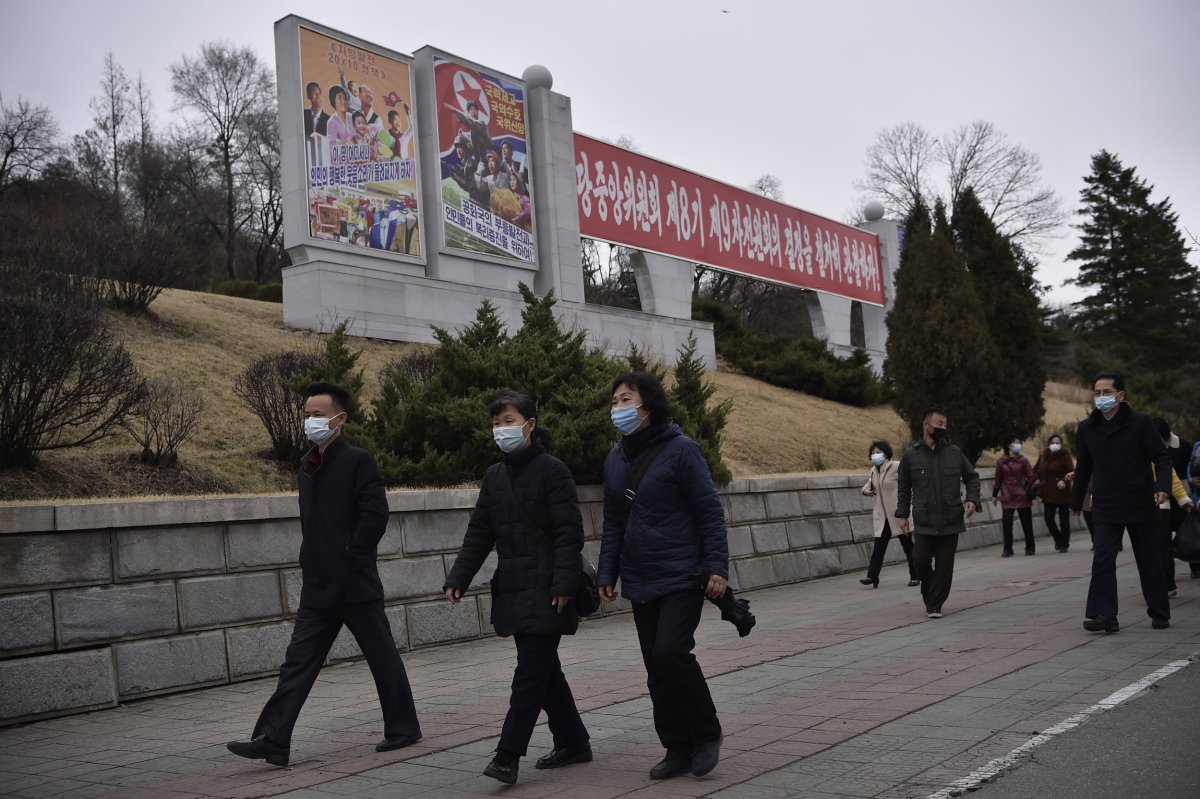North Korea has dismantled an influential organization formed to promote eventual reunification with the South, with Pyongyang-Seoul relations at their most fraught in decades.
During a Saturday meeting of the Democratic Front for the Reunification of Korea's Central Committee, members decided the DFRK was no longer necessary at a time of hostility with "principal enemy" Seoul and formally dissolved it, the state-run Korean Central News Agency reported Sunday.
The nearly eight-decades-old DFRK was the latest result of Supreme Leader Kim Jong Un's campaign to purge any references to a reunification with the South. A formal peace treaty between the two countries has never been signed despite the end of open hostilities in 1953, when the Korean War ended.
The move comes after Kim declared that continuing to pursue a rapprochement with Seoul was no longer possible and that Pyongyang should amend its constitution to brand the South as its "primary foe and invariable principal enemy."

In January, the country's rubber-stamp parliament abolished several organizations involved in what limited inter-Korean cooperation existed, including the one handling relations with the South.
During Saturday's meeting, it was determined that Seoul was not a "partner for reconciliation and reunification" but rather "the most hostile state, invariable principal enemy and completely foreign country." Central Committee members reached a consensus to dissolve the DFRK.
"We speculate about North Korea at our peril, but this purported northern shift toward branding the South a foreign country could be a further justification for Kim reserving the right to use nuclear weapons on Earth that he, his father and his grandfather once claimed as their own," Sean King, an Asia scholar and senior vice president of New York–based consultancy Park Strategies, told Newsweek.
"Or, less worryingly, it could be setting the stage for Pyongyang's grudging acceptance of two Korean states coexisting side by side. We just don't yet know what it all means, but it bears careful monitoring for sure," King said.
North Korea's embassy in Beijing did not immediately respond to an emailed request for comment.
Bong-geun Jun, a nonresident senior advisor for Northeast Asia at the United States Institute for Peace, wrote last month that the North's shift away from talk of reconciliation indicates that Pyongyang realizes it has lost the "unification competition."
"Historically, unification is possible only when the stronger country absorbs the weaker one militarily or peacefully. Today, South Korea is a leading middle power, while North Korea is an isolated rogue state," Jun wrote.
Established in 1946, the DFRK was a political alliance in North Korea aimed at promoting the reunification of Korea under North Korea's terms.
It functioned primarily as a tool for the Korean Workers' Party to unify domestic support for its policies and vision of Korean reunification, which emphasized the North's leadership over the entire peninsula without foreign intervention, particularly from the United States.
Tensions between the neighbors have ratcheted up in recent months amid the North's ballistic missile tests, artillery drills held near South Korean islands, and the end of a landmark 2018 military agreement meant to defuse tensions.
Update 3/26/24, 11:45 p.m. ET: This story has been updated with a comment from Sean King of the New York–based consultancy Park Strategies.
Uncommon Knowledge
Newsweek is committed to challenging conventional wisdom and finding connections in the search for common ground.
Newsweek is committed to challenging conventional wisdom and finding connections in the search for common ground.
About the writer
Micah McCartney is a reporter for Newsweek based in Taipei, Taiwan. He covers U.S.-China relations, East Asian and Southeast Asian ... Read more
To read how Newsweek uses AI as a newsroom tool, Click here.








